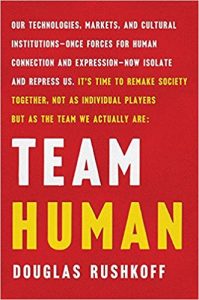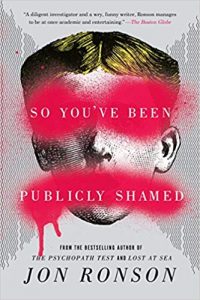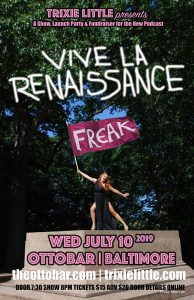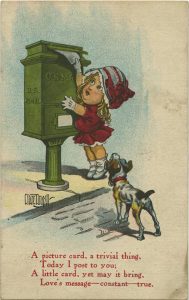Trixie Little rebuffs reproach with call for Renaissance
BALTIMORE — Trixie Little – that tiny redhead with an infectious laugh and engaging smile – has never led what most would consider to be a “normal” life. As the playful persona who almost single-handedly revived Baltimore’s barren burlesque scene, Trixie rode a wave of her own making from Charm City all the way to the Burlesque Hall of Fame. Yet within two years of winning the coveted crown of Miss Exotic World, an avalanche of noxious retorts on social media – deriding her calls for civility on two contentious topics – effectively ended Trixie’s career in burlesque.
The effect on Little’s life was, in short, devastating – creating a cauldron of consequences she still struggles with today. Sadly, she is not alone, as Jon Ronson – author of the social media critique, So, You’ve Been Publically Shamed – rightly observes: “We are defining the boundaries of normality by tearing apart the people outside of it.”
Normal for Trixie may not be normal for most. But she is a fighter who has weathered a series of crushing blows to rebound with both her smile and a timely mission. Trixie will be sharing her vision “for a societal renaissance” tonight at the Ottobar. We caught up with her earlier this week for a frank look at the firestorm she endured and a few insightful words about the welcome rebirth of Trixie Little.
BPE: Please tell us what you’re doing back here in Baltimore and how that ties into what you’ll be doing on July 10 at the Ottobar?
Trixie: Well, I’m back here because I have two sisters who are pregnant, and one of them is about to pop. But honestly, I just wanted to come home, because all of the best things I ever created were done here in Baltimore. And not just what I did in burlesque.
I am very proud of the time I spent working with kids who live in the shadow of the city prison. Teaching those kids circus skills, while getting to know them and their families, is one of the highlights of my life.
Anyway, I’ve been working on a podcast, so when I got here, I reached out to the Ottobar and learned the theatre was open Wednesday, July 10. I had planned on doing a show at some point while working on my podcast, so this will be it. The show is a fund-raiser, but the thrust of all of this is centered on being human.
BPE: Being human? Could you elaborate on that?

Trixie: Douglas Rushkoff wrote a book, called Team Human. It really helped me to see how technology can affect our lives in a negative way. Rushkoff talks about the importance of consciously connecting with people – of being around others in a physical way. He maintains that without these connections, we just don’t thrive. But he goes further and says that artificial intelligence – which is designed to keep people online – is almost demonic in the way it drives us apart; to do and say things we wouldn’t normally do.
I wondered if these algorithms hadn’t played a part in the real-life drama that I went through in New York – keeping a lot of vitriol at the top of everybody’s news feed.
BPE: Was this a case of the algorithms helping to create a tempest in a teapot?
Trixie: Well, what should have been a local issue became an international topic.
Rushkoff makes the point, though, that even trees’ roots share the same source for water. So, we don’t need a revolution in our thinking – we need a renaissance. A golden age of enlightenment brought in through the arts.
When I read that, I thought, “That’s my life!” I actually studied painting in Florence while I was in college. One class was called “The Birth of Perspective” which now seems strangely apropos.
This concept really spoke to me, so I’m doubling down on the Renaissance idea.
I was already working on this with my cabaret shows in LA. I think playfully pushing taboos is really important. So, I’m working on two projects simultaneously. My cabaret act and my podcast and website: Vive La Renaissance.
The podcast part was not something I initially wanted to do, but people kept pushing it, and I realized, “You know – I have a lot to say.”
BPE: You’ve always spoken your mind. How did that play into the trouble you had on social media?
Trixie: I hesitate to go there, because everyone’s immediate reaction is, “Well what did you say? What did you do?” I’m sure along the way I made some analogies and word choices that weren’t the best. But the threads took off in another direction which had nothing to do with what I’d been speaking about.
Ruinous social media threads are really my point – not specifically what was said or done to me.
I understand that fair-minded people want to hear both sides of the story. But for me, the real story is how internet trolls destroyed my life. They ruined things I’d been working on for years, along with ruining my reputation to the point where people don’t want to work with me anymore. That was a surprise, because I don’t think of myself as a bad person.
Having been off of social media now for over a year, I can see how the various mediums damage social interaction. I’ve noticed how people don’t reply to emails or return your calls.
Texting is also an issue because people rarely have their head up when they are out in public. That connection is something I miss a lot. I joke all the time that the real world is better than we remember it. It would be nice if more people would meet me here.
I’m not judging people on this point, because I used to be right there with social media. But being on social media is a lot like living in New York: It’s great until it’s not.
BPE: And when it’s “not”?
Trixie: It’s really not. I’ve just endured so much damage to my life from hurtful people – I guess you’d call them trolls – who would say things on social media you would never say in person to anybody. Or should be said to anybody.
BPE: So, the genesis of the podcasts goes back to problems you had on social media?
Trixie: I’m making these podcasts because of everything I went through – what I’ve learned on my own and with the help of others who have gone through similar situations. It’s important to me to build a community here – to let others who have gone through this know that they are not alone. And to exercise those connection muscles before they are completely gone.

We can’t continue to treat each other this way. It’s NOT okay, and I think that message has gotten lost.
I believe in what I’m doing in cabaret. Cabaret is an immediate art form and it pokes fun at the conventions and taboos of our time. I’m afraid we have lost that with today’s culture of hypersensitivity. Comedians talk about how they’ve found that you can’t say anything anymore. We need those voices. I’m trying to create a space where that can be appreciated again. It would be a grand time to live in, and that’s the kind of world I am fighting for.
BPE: Your move to LA was precipitated by posts about a series of events in New York. I don’t want to pry into your personal business, but I would like to ask what happened on the professional side.
Trixie: I really don’t want to get into the intricacies of what happened in New York. I’m trying to put that all behind me. But I will say that I don’t believe in censorship – whether it’s banning words or burning books. I also don’t believe in shutting down venues where free expression has always been encouraged. That’s how the 1st Amendment works. You’re not always gonna like what you hear. But because that is a core value of this country, you’re gonna defend that right.
Hey, I don’t always agree with everything I see and hear – even when I’ve stopped to consider the context. But being a performer on the edge, I’m hyper-aware of how censorship can bleed into the things I do. That Puritanical, fascist stuff is very dangerous. So I’m not a fan of throwing people under the bus who are on the forefront of being expressive.
BPE: Is some circumspection appropriate here?
Trixie: It all comes down to nuance.
If you’re gonna slap a label on every person who has ever put their foot in their mouth, you’d better have a lot of labels – and start with yourself.
Let me just add, that if you extend it logically, once you go down that road, then you are policing people’s behavior. How is that different than what we are supposedly fighting overseas?
BPE: There was a second, more serious issue concerning someone in the burlesque community?
Trixie: Yes, and again, I don’t want to speak to the particulars in that situation because I don’t know all of the details. But you know what? Nobody does, except for the people directly involved. I wasn’t defending anyone. I only said that if what I’d heard was true – and the allegations were pretty serious – it needed to be adjured in a court of law – not on social media. By that point, I figured I didn’t have anything else to lose.
Boy, was I wrong.
BPE: You’ve used the word “trolls” a couple of times. I assume you’re speaking of people you didn’t necessarily know. But you also had friends turn their backs on you?
Trixie: Yes, and that is the worst part. I had no idea that people I had worked with – people I’d known for 15 – 20 years – would side with the haters and trolls. That stunned me, but that’s exactly what happened.
BPE: This happened with some local venues as well?
Trixie: Yes. The Creative Alliance broke my heart.
BPE: How so?

Trixie: I had a twenty-year relationship with them, going back to the days when they were above Margaret’s Café. I worked in all four of their locations and did my Christmas show at the Patterson for ten years. And when the hate started flying, they didn’t even give me a courtesy call to let me know that they were booking my “friends” to replace me.
This is how the world works now?
BPE: All of this goes back to a handful of posts on social media?
Trixie: Yes, and by the time I realized what was happening, the damning things that were being said about me had traveled around the world.
I can look back now and see how this all unfolded – how the algorithms kept this drama at the top of everyone’s news feeds – but there’s no consolation in that and it doesn’t right the damage that was done.
BPE: You’ve been advertising your July 10 show at the Ottobar, so that will definitely happen?
Trixie: Yes! We hope to make it as fun and as weird as possible. It should be weird, since I came to Baltimore without any of my costumes! But as I said, it is a fund-raiser and will serve to introduce my fans to what I am up to now, so I’m super excited about that.
BPE: What will the funds raised be used for?
Trixie: It’s funding me to do the podcast and to continue the cabaret collective I started in LA. I’m still trying to get back up on my feet in Los Angeles – it’s not an easy town to crack. And when I get back, I’m going to have to move, so it’s a difficult time.

BPE: Is America ready for a Trixie podcast?
Trixie: I don’t know. I’m getting some great feedback, but I don’t think Americans really value the arts. I mean, why is it that I have to travel to Australia and Europe to find work? In America, people think that corporations should pay for everything. They are used to “free” shipping from Amazon but never stop to consider how that is happening. There is a cost behind everything, yet we have this distorted view of the world around us. Art is more than turning a story into a blockbuster movie. Art is about feeding people – touching the heart and soul. Anyway, that’s the path I’m on – it’s just happening faster than I could have ever imagined.
BPE: Making ends meet in the arts has never been easy.
Trixie: A lot of people don’t understand those of us who have chosen to walk this path, which is very unforgiving.
People think that just because they have an Instagram account with a lot of pictures, they have somehow arrived. That’s not how it’s done in the real art world – that’s not how the sausage is made.
BPE: You’re living in LA now, but as you’ve already stated, your connections to Baltimore are still quite strong. Have you considered returning to Maryland permanently?
Trixie: Well, while I’m here, I’m looking for a venue where I can revive both my Christmas Show and the Baltimore Beauty Pageant. If that happens, of course, I’d return every year to do those shows. I love the area, and I love the people I work with here. But I’m at a level professionally where I don’t want to be the biggest fish in the pond. That’s just not fun for me.
BPE: So you think you’ll stay in LA?
Trixie: I don’t know. I guess I’ll let the universe decide. I’ve got roots in LA now, too, but I don’t know if it’s my forever city. But I think there’s a lot there I can learn – and a lot of things I can teach as well. They really don’t understand the concept of community in LA.
BPE: I believe you have already established that “community” can be as hurtful as it is helpful.
Trixie: Yes it can. I’ve just celebrated one year of being off of Facebook, but I’m still hearing about the comments people make about me there. I’m away from that crowd, but the “community” is still as toxic as ever. Again, I understand now how that mechanism works, but others don’t, and I’m not sure of the most useful way to address that toxic atmosphere. And even if I did, I’m not sure that people are prepared to listen.

Anyway, as I said, I’m moving on. I’m excited about my life’s work. It’s not about lecturing people on how they are wrong. It’s about celebrating life through the arts. Someday, real art will matter again, and I want to be on hand to see it. I’d like to think a parallel universe exists where talent prevails; where people are connected to the arts and to each other.
BPE: But not connected on the phone?
Trixie: It’s funny – I used to be that person who would walk around with a phone in their hand – checking into Facebook and scrolling through posts while sitting at a table with someone else.
Now I see how rude that was – and is.
Today, when people come into my life, I actually pay attention. I want to get to know them – to understand why they’ve appeared. Who cares about a million people on social media cluttering up my mind? I just wish more people would get off of their phones so that I could really get to know them. I’ve got some terrific pen-pals, and we stay in touch that way. I’ll pop a card in the mail and be excited for days – knowing the fun they’ll have when my missive arrives.
Maybe I’m a weirdo, but I need a little slice of the world where personal connections are allowed to happen.
BPE: Is this another area you’ll be exploring in your podcast?
Trixie: Yeah, but I’m really gonna focus on people who have never had a day job. People who have gone down the path of just following their bliss – how they’ve navigated it. Not why, but how. I really do believe that if more people followed their passions, the world would be a better place.

Anthony C. Hayes is an actor, author, raconteur, rapscallion and bon vivant. A one-time newsboy for the Evening Sun and professional presence at the Washington Herald, Tony’s poetry, photography, humor, and prose have also been featured in Smile, Hon, You’re in Baltimore!, Destination Maryland, Magic Octopus Magazine, Los Angeles Post-Examiner, Voice of Baltimore, SmartCEO, Alvarez Fiction, and Tales of Blood and Roses. If you notice that his work has been purloined, please let him know. As the Good Book says, “Thou shalt not steal.”

?